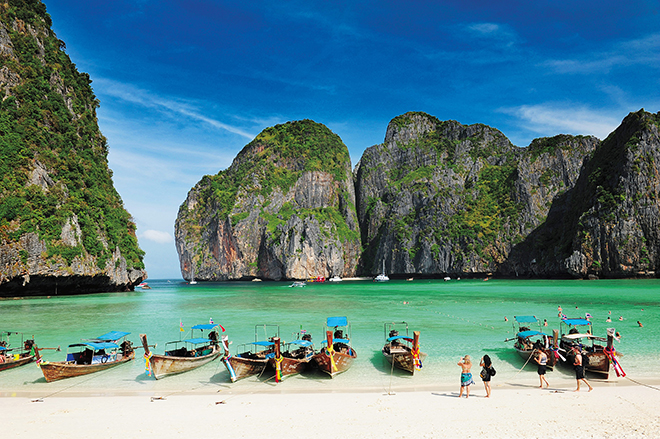Bangkok, 15 February, 2018 – Phi Phi Islands and Maya Bay remain open as Thailand’s Department of National Parks, Wildlife and Plant Conservation (DNP) begins its annual cycle of temporary closure of national parks next month, which allows for natural rejuvenation during almost half the year depending on the schedule.
This is often due to extreme weather that may create unsafe conditions and to allow for some ecological recovery time. Several national parks close every year for certain periods between March and December (dates are varied depending on weather and park conditions).
To make sure parks are open, it is best to contact the DNP prior to planning a visit as phone numbers for all national parks are available online in English (scroll down to the last pages of the manual).
The annual closure includes many favourite tourist islands and beaches in the Andaman coastal area, allowing the destinations to recover after welcoming a large number of tourists all year long.
These include Mu Ko Surin and Mu Ko Similan National Parks in Phang-nga province; the Ko Hin Daeng – Hin Muang, Ko Ha and Ko Rok diving sites located in Krabi’s Mu Ko Lanta National Park; Hat Chao Mai in Trang; and the islands of Lipe, Adang and Rawi in Satun’s Tarutao National Park. Over one million people visited those five parks alone in 2016, according to the DNP.

However, the DNP has so far confirmed that the Phi Phi Islands, where the famous Maya Bay is located, will remain open to visitors. Nonetheless, this does not mean that they will not close it in the future. Any national park closure of offshore islands, which also is traditionally in the middle of the annual monsoon when rain is persistent, comes when few tourists are interested in taking boat transfers in stormy conditions.
Some have called for stricter measures; such as, a daily cap on visitor numbers and even the permanent closure of Maya Bay to daytrip sightseeing boats.
This is because Thailand’s offshore islands and coastal marine environments remain under threat from travellers (both foreign and domestic) who feed fish, pollute coral reefs, and handle starfish and other marine life – all of which is strictly forbidden.











